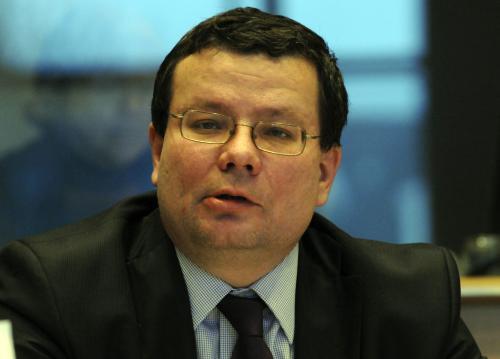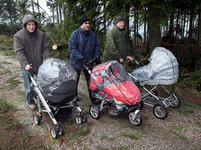Prague - The Czech Republic is the only country that has not yet adopted the anti-discrimination law. Following Klaus´s veto in May last year, arguing that the bill would eliminate "natural inequalities". The bill is to be presented again for a vote in parliament at an unknown date.
Last December the European Court of Justice reprimanded the country for failing to implement two directives on the equal treatment of men and women.
Vice-president of the European Commission (EC) Margot Wallström who is active in promoting gender equality in the EU institutions says the Czech Republic has to improve the representation of women in political decision making bodies. The wide gender pay gap and and lack of women in politics are two fields the country should focus on.
"You have to use your voting right to change things," the 52-year old mother of two says about the upcoming election to the European Parliament.
Aktuálně.cz: The Czech Republic has one of the lowest representations of women in politics in the developed world - just 15.5 percent of MPs and 17.3 percent of senators. In comparison to the other EU member states, are we really lagging behind so much?
It depends on what you measure because you also have prominent women, you have a defense minister and she is a role model in occupying such a post. I mean we do not see so many women as defense ministers [in the EU].
My impression is there are so many competent women in the Czech society but I think you have to improve the representation in the political decision making bodies and also in your parliament and senate.
Violence against women exists in all member states. The pay gap is still enormous also in most of the EU member states. For the same job women are paid less. The wage gap is between 15 - 27 percent and unfortunately the Czech Republic is among the countries with the very big wage gap.
A.cz: Aktuálně.cz: You worked as an MP, and twice as a minister in Sweden, now you are in Brussels. How did and do men treat you as a female politician?
When I was the minister in Sweden, we had a small network of women ministers, so we would meet and discuss things and compare and share experiences and our views. There was the need to do so because - not that we would be bullied by our colleagues, not at all - but there are certain techniques to keep women feel inferior by ignoring what they say. But this happens all the time everywhere. Female politicians have to meet and talk and support each other.
A.cz: Sweden has 47 percent of female MPs. How did you achieve such high numbers?
First of all, there must be political will. But what really changed the whole political establishment was the threat of having a strong women´s political party. Because it has come to such a point when the situation became unacceptable for women. They wanted to have a better representation. That happened in the 1970s.
Also, a free press and a very open society help to create the pressure. But the threat of having a well established, a well respected women´s political party scared the political establishment. It meant an immediate change in their attitude in allowing women candidates. Every Swedish political party and every political leader is in favor of gender equality.
A.cz: So it was only the threat of having a female political party?
Well, men have also seen that they have a lot to gain from equality. They have a better access to their children now. They share the work in the family and that has given them a different role which is a better one than the one my father experienced, for example. My mother would tell him in the evening: "The children were naughty, so you better punish them". And he hated that. He did not want to come from work only to punish the children. But that was the traditional role of fathers at that time. That's why we have to break these stereotypes.
A.cz: Sweden is famous for having the parental leave as one of the first countries implemented. Do men really use it?
Today I would say a majority of young men when they become fathers use the parental leave. They want to be home with their children and they want to share a working life with their partners and they see this has improved the quality of their work life, because they work less.
Also, sharing the work life between men and women and using the potential of women helped Sweden economically. Because the question is can a modern society afford not to use the potential of women? The society cannot grow if women are not represented. It helps the economy. It helps the country to grow.
A.cz: How are you doing with promoting gender equality debate in the EU institutions?
Unfortunately today the gender equality is seen as a secondary issue. It is left for discussion only for women. If you see EU, it is mostly men and sometimes a few women. The EU institutions deal with issues that are important to women and that influence the lives women too, so women should be represented too and their voices have to be heard. And that is something for Czechs to do too.
I am not saying whom to vote for but I am saying you have to use your voting right to change things.
Read more





